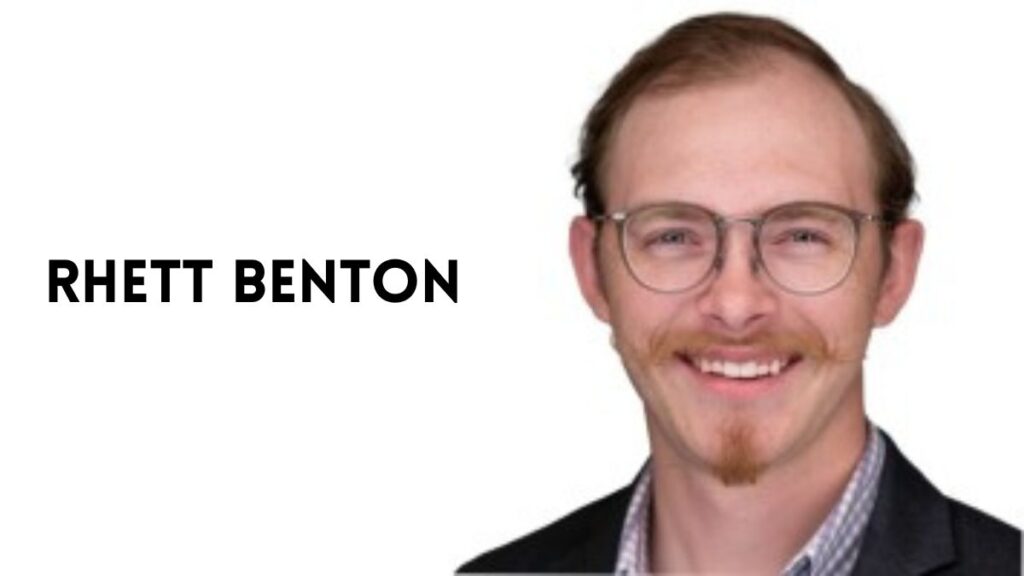Act One: The Unlikely Spark
In an industry saturated with noise, it’s the silences that make people unforgettable. Rhett Benton, a name that flickers quietly through the circuits of American cultural memory, has always stood slightly to the left of the limelight. Not out of neglect—but choice.
Born in Austin, Texas, in the summer of 1985, Rhett Benton entered the world with a name fit for a country music song and a personality that was anything but typical Southern charm. His childhood was carved out between the humid poetry of back porch summers and the raw friction of growing up as a mixed-race kid in a still-divided America. His mother, Denise Benton (née Alvarez), a first-generation Mexican-American nurse, and his father, Harold Benton, an English professor at UT Austin, created a home where literature met resilience and identity was always on the table.
The young Rhett was precocious, prone to disappearing into books, sketchpads, and eventually, camera lenses. He didn’t speak much until the age of five—when he did, it was with full sentences, usually referencing things far above his age group. “He’d quote Hemingway before he could tie his shoes,” his sister Emilia once said in a rare interview.
It wasn’t long before the world took notice.
Act Two: The Camera Learns His Name
Rhett’s first public appearance wasn’t as a child actor or a prodigy on a talk show. It was subtler, yet arguably more significant: a finalist photograph in National Geographic’s youth competition, aged just 12. The subject? His grandfather’s hands—weathered, cracked, and beautiful in their imperfection.
The photo made waves. It was shared in educational circuits, featured in galleries, and eventually caught the eye of a recruiter from the Tisch School of the Arts. At 16, Rhett left home with a scholarship, a Leica camera, and a fire burning through him for something he couldn’t yet name.
In New York, he dabbled in everything: cinematography, sound engineering, even performance art. But it was storytelling that rooted itself deepest in his bones. Rhett Benton wasn’t just going to take pictures—he was going to tell truths.
By 21, he had co-directed his first documentary, Margins of the Middle, a searing look into forgotten voices in Midwestern politics. The project received critical acclaim at Sundance 2007. It was raw, unpolished, and wildly human—a mirror of Rhett himself.
Act Three: The Ascent and the Anxieties
The late 2000s were a whirlwind. Rhett became a darling of the indie film scene, often mistaken for a younger Ava DuVernay or Barry Jenkins—a comparison he bristled at not because he didn’t admire them, but because he didn’t want to be boxed in.
His breakout narrative feature, Side Streets and Static (2010), was lauded by Variety as “quietly revolutionary—a cinematic haiku about displacement, fatherhood, and Black-Mexican identity in the gentrified South.” The film earned him a Spirit Award and an invitation to direct an HBO miniseries based on the early essays of James Baldwin.
But even as the offers stacked up, Rhett withdrew.
By 2013, at just 28, he had turned down five major studio projects. Friends described him as “haunted by perfectionism,” a workaholic who oscillated between brilliance and burnout. Rhett himself, in his only major profile interview with The New Yorker, admitted:
“I got scared. Scared of becoming a product. Scared that my stories would stop being mine.”
And so, he paused.
Act Four: The Disappearance
The silence from Rhett Benton between 2014 and 2018 wasn’t a disappearance—it was a deliberate shedding. No posts. No premieres. No interviews. Rumors swirled. Some said he had gone to Paris to write a novel. Others whispered of a breakdown.
The truth, it turns out, was both simpler and more complex.
Rhett had moved to New Mexico, retreating to a solar-powered adobe home outside Santa Fe. There, he taught workshops on visual storytelling at a local arts collective, mentored Indigenous youth, and—according to some who attended—became something of a myth.
“I didn’t even realize who he was until a week into the workshop,” said Jana Ortiz, now a filmmaker herself. “He introduced himself as ‘Rhett. I just tell stories.’ That humility taught me more than any class could.”
His time away also led to a personal reckoning. Benton reconnected with his estranged father, began therapy, and slowly started writing again. Not screenplays this time, but essays, poetry, and letters—hundreds of them. “I had to remember who I was when no one was watching,” he later wrote in a guest piece for The Atlantic titled The Art of Stepping Back.
Act Five: The Return—On His Terms
In 2019, Rhett reemerged—not with a film, but with a manifesto. In the Frame: Ethics of the Modern Storyteller was part memoir, part creative polemic. It critiqued the commodification of trauma in contemporary media and laid out a new vision for what he called “responsible art.”
The book became a cult hit in academic and activist circles. Suddenly, Rhett Benton wasn’t just a filmmaker—he was a thought leader.
His next move surprised everyone: a serialized short film series on YouTube, shot entirely on smartphones, starring non-actors, and funded by micro-grants. Voicemails from the Edge featured episodes like “A Letter to My Deportation Officer” and “Three Minutes with a Ghost in Atlanta.” Each was short. Brutal. Lyrical.
They went viral—not in the TikTok sense, but in the old-school, underground-circuit way. Shared by professors, artists, teens with fire in their bellies.
Benton, now nearly 40, had matured into something deeper than a celebrity: a cultural curator. A storyteller for the people.
Act Six: Rhett Today
So where is Rhett Benton now?
Physically, he splits his time between Austin, New York, and a small cabin outside Oaxaca, Mexico. Creatively, he’s working on a hybrid film-poetry anthology funded by a grassroots collective. Rumored to be titled Borders in Bloom, it’s said to blend live action with stop-motion animation and spoken word.
He teaches regularly, still avoids red carpets, and has turned down offers from Netflix, Amazon, and even the Criterion Collection to retain full creative control. “My art doesn’t need a subscription model,” he quips.
But his presence lingers powerfully in the creative world. Mention Rhett Benton in filmmaker circles, and you’ll often hear stories—not gossip, but gospel. Of how he helped a production assistant get funding for their first film. Of how he walked out of a major panel because a disabled filmmaker wasn’t given a mic. Of how he chose to be remembered not for visibility, but for impact.
Epilogue: The Man Behind the Lens
What makes Rhett Benton so elusive, and so compelling, is that he understands the gravity of being seen—and the power in choosing when not to be. In a culture obsessed with exposure, he offers an alternative: intentional invisibility. Creative control over commodification. Depth over reach.
He is not the loudest voice in the room. But he’s the one you remember when the noise dies down.
As one of his students recently said, “Rhett doesn’t chase relevance. He defines it.”
And in the end, that may be his most radical act.
Quick Facts: The Essential Rhett Benton
| Category | Detail |
|---|---|
| Birth Year | 1985 |
| Hometown | Austin, Texas |
| Ethnicity | Black / Mexican-American |
| Notable Works | Margins of the Middle, Side Streets and Static, Voicemails from the Edge |
| Known For | Indie film storytelling, cultural commentary, radical authenticity |
| Not on | Twitter, Instagram, or TikTok |
| Current Project | Borders in Bloom (in production, est. 2026 release) |
| Side Hustles | Teaching, mentoring, spoken word, digital minimalism advocacy |
The Legacy in Progress
Rhett Benton may never win an Oscar, and he probably doesn’t care. But ask the next generation of storytellers, activists, or thinkers who influenced them—and his name echoes like a quiet prayer.
In a world addicted to spectacle, Rhett Benton reminds us that truth doesn’t always arrive with a bang.
Sometimes, it whispers.






